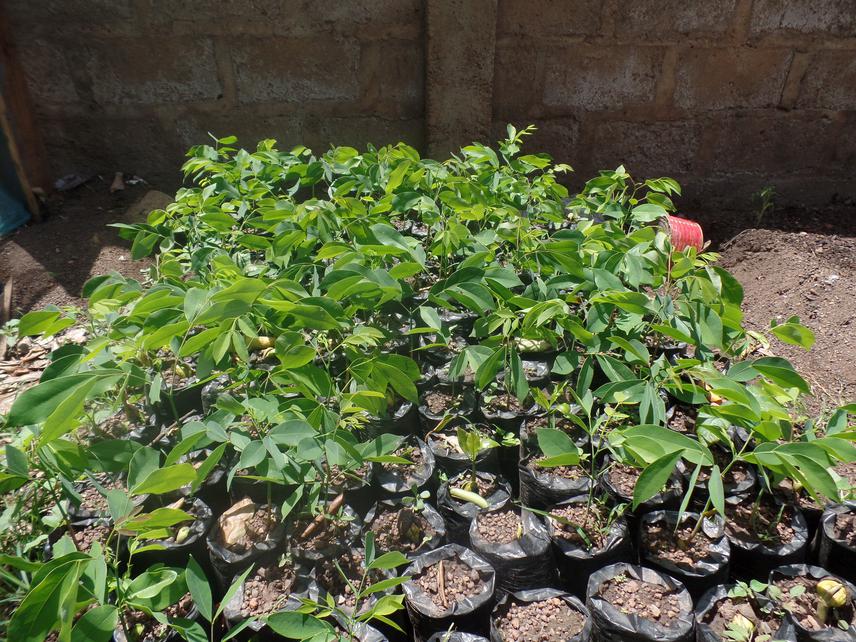Thierry Dèhouégnon Houehanou
This project work is contributing to (i) document knowledge of surrounding communities of classed forests of Djougou township on forest genetic resources (ii) promote artificial plantation of some important forest genetic Resources (iii) establish botanic garden for biodiversity conservation and students training.

Afzelia africa plants in production for botanic garden of Higher National School of Agronomics Sciences of Djougou, Benin.
Forest Genetic Resources in African developing countries are undergoing severe degradation these last decades. Djougou Township located in Sudanian zone of Benin holds lots Forest Genetic Resources distributed in five classed forest that are undergoing human pressure. Due to the acknowledgement assigned to local community knowledge for biodiversity conservation this last decade, the present project aims to use community knowledge based approaches for biodiversity conservation by:
- documenting the different local uses of forest genetic resources,
- dentifying forest genetic resources that are more important to local communities regarding tree value for them
- documenting local perception on management, conservation strategies and germination constraints of highlighted important forest genetic resources
- selecting with local communities some tree species for germination trial and tree nursery
- performing the germination trial and tree nursery of selected tree species
- planting produced plants in some agroforestry parklands with local communities
- selecting a botanic garden on the site of Higher National School of Agronomics Sciences of Djougou
- inventorying tree species on that site and label some species samples
- planting samples of produced plants of forest genetic resources in the botanic garden with their label name and important value
To achieve these objectives we will use ethno botany survey, germination trial and tree nursery, tree inventory, botanic garden installation and tree planting. This project will provide three levels of practical conservation outputs such as production and plantation of tree species, botanic garden setting for biodiversity conservation and production of scientific papers in conservation frame. This project is of a great conservation importance. Indeed, the species that will benefit from this work concern mostly the valued forest tree species and the threatened ones. Thus, three categories tree species that have conservation importance will benefit from this project. The first group tree species concerns locally valued tree species that are threatened and have already a threat status on IUCN Red List. The second category concerns locally valued tree species that have not been assed yet by IUCN but there are already on its data list for future assessment. The third category of tree species concerns tree species that are locally valued and consequently pressure are exacerbating on them but, they have not been yet assessed by IUCN and also there are not yet listed in its data base.